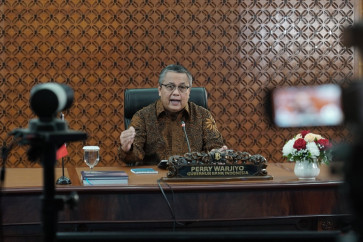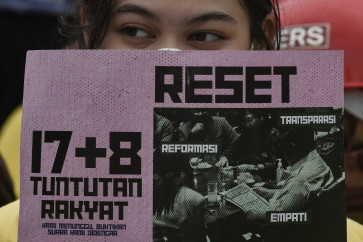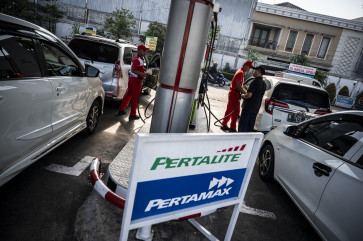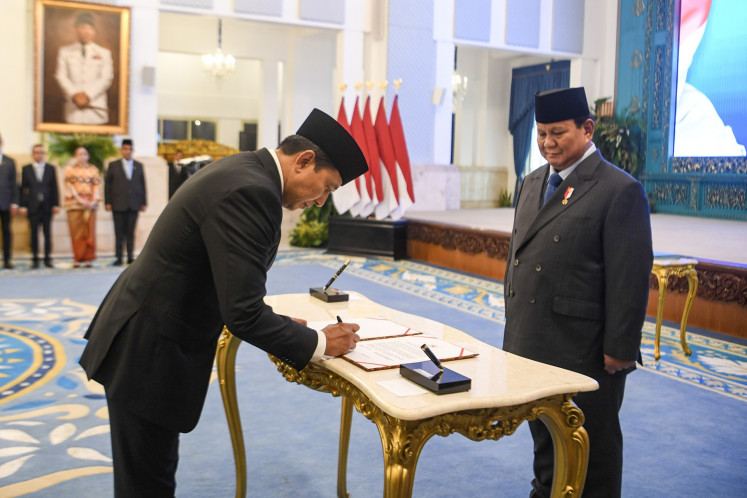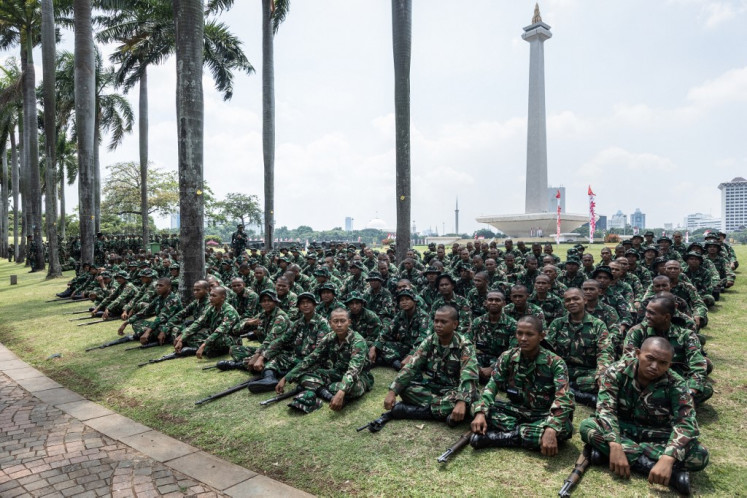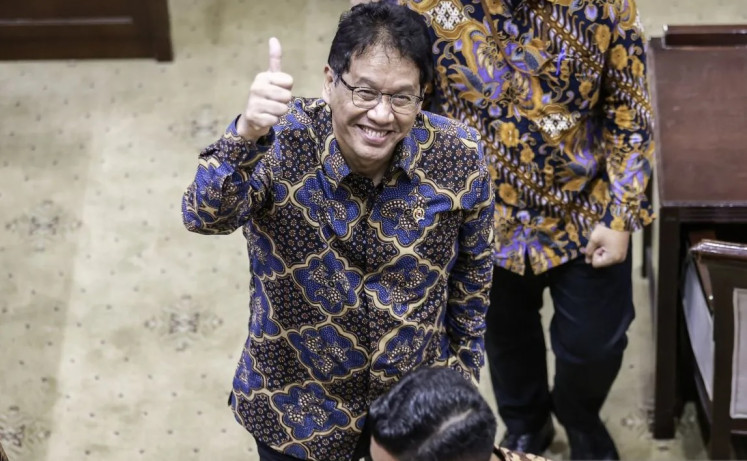Popular Reads
Top Results
Can't find what you're looking for?
View all search resultsPopular Reads
Top Results
Can't find what you're looking for?
View all search resultsDiscourse: People in developing countries suffer most from crisis: Sherpa
The G20 Summit concluded last week with member countries pledging their boldest political and financial commitment ever in order to navigate the global economy from the abyss
Change text size
Gift Premium Articles
to Anyone
T
he G20 Summit concluded last week with member countries pledging their boldest political and financial commitment ever in order to navigate the global economy from the abyss. Last week’s proceedings owed much of the progress gained to the sherpas, the personal representatives of heads of state on non-financial issues. The Jakarta Post’s Andi Haswidi spoke with Indonesian sherpa and also deputy finance minister, Mahendra Siregar, in Los Cabos, Mexico. Below are excerpts from the interview.
Question: Can you give us an overview on some of the progress made under the Sherpa track?
Answer: The Sherpa track basically focuses on non-financial issues, development issues in particular. We are now pushing for the G20 mechanism to formally adopt measures that can support infrastructure development and food
resiliency.
For infrastructure, we want to include investments in infrastructure as part of the mainstream framework within the G20. When that happens, finance ministers and central bank governors of G20 countries would have to allocate resources, whether in the form of capital or maybe ideas, specifically to support infrastructure financing. This agenda is dear to emerging countries that still rely on foreign investment to grow.
What sort of institutional vehicle can be used to sustain this initiative on infrastructure?
This is exactly where the debate is at. This has to be formulated by finance ministers together with central bank governors of the G20 countries. We will use whatever available institution at the multilateral level. We still need to talk about this.
What are the immediate objectives for food resilience?
We want to maintain some form of price stability. We aim to do this through, among other things, ensuring that there will be transparency in commodity transactions. This will allow better monitoring of prices. Our aim is basically to avoid over speculation of commodity prices. There has to be a clear underlying transaction for commodity trade in the future.
Is the G20 considering controlling futures trading?
Control in the sense that companies would be required to be more transparent. We will not limit any activity; we simply want to monitor activities better. This initiative is not easy. Member countries can have different opinions on how to implement this.
Commodity prices are expected to come down as traders expect weakening in China. What is your forecast on this?
That is true, all because of the prolonged crisis in Europe. The momentum for growth is heavily distorted by the lack of progress in Europe. We really hope that the momentum will be regained.
Indonesia is a crisis surviving country. What lessons can we share with economies that are in trouble?
For any economy in crisis, there will be many sacrifices to be made. The biggest sacrifice could be in the form of a change in government.
It is important to realize that there are matters at stake. With that in mind, all parties involved must nurture trust among each other so as to safeguard the process of reform. We did exactly that during our reform process. Reform plans must be carried out consistently.
The momentum must be maintained; the accountability of the reform process must be secured. If not, the credibility and the accountability of the government would be tainted. I think this is a valuable lesson that we can share with other nations, without attempting to dictate to them.
What do you make of the outcome of the Greek election?
We at the G20 as a whole, see the outcome as something positive.
However, progress would depend on the day-to-day development in the near future. In the past month, Greece struggled to form a functioning government. Now, with the result of the election, there is an almost definite chance for the creation of a coalition government. If that happens, the chance to continue reform programs in Greece and also in other eurozone economies would have a much higher probability for success.
The G20 hopes that the people of Greece and its government could have a better chance to come up with solutions.
Although favoring a bailout, parties that won the election are demanding renegotiation on terms of conditions for austerity. What are the chances for them getting what they want?
I see that as part of a process. A government has political accountability to its people. It is the authority and sovereignty of Greece to demand renegotiation. What is important to the rest of the world is that the winners of the election are not anti-reform. I think it is best for the process to evolve naturally.
How do you see the global outlook post G20 meeting here in Los Cabos?
This good momentum can bring about confidence. We hope that countries in the eurozone can take immediate actions and bring back market trust. I am confident. Confident in the sense that there is a new momentum. That doesn’t mean recovery is evident; not at all. There are still tough times ahead.
We need to make sure that coordination among nations goes as planned. There is no time to be complacent, because the risk is grave.
The WTO said protectionism has become more apparent these days and is likely to worsen. Do you share such a belief?
Again, that is a direct impact of a prolonged global economic crisis. So, we have to improve the momentum and cherish it.
In any form of economic crisis, it is always those who live in developing countries that suffer the most. The impact on them would be far more unbearable.
If we don’t act swiftly, the poorer and the vulnerable will suffer the most pain from a prolonged crisis. We must have the right sensibility and sensitivity to watch over and prevent such a situation from happening again.


